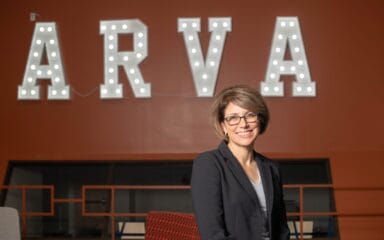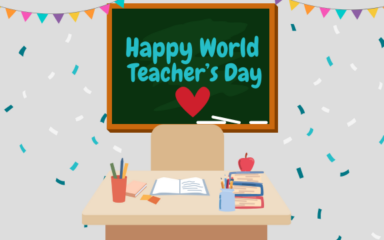
As an Arkansas Virtual Academy (ARVA) counselor with over 30 years of experience, I have seen how profoundly bullying affects students’ lives. Preventing bullying isn’t just about stopping bad behavior; it’s about equipping young people with resilience, self-confidence and the skills to navigate social challenges. For parents and K-12 educators, understanding how to create positive, proactive environments is essential — whether in a traditional classroom or a virtual one. By embedding awareness and support into our daily routines, we ensure that our collective resilience against bullying strengthens.
Stories of Resilience: Triumphs in the Virtual Classroom
Consider the journey of Jackson (a pseudonym), a dedicated student and athlete who faced threats and bullying at his former school. Although he appeared grounded, the bullying left lasting scars on his confidence, visible only to his family. Transitioning to ARVA gave Jackson the structure and autonomy to rebuild his self-esteem and focus on his education in a supportive, distraction-free environment. With fewer social pressures and more tailored options for engaging in classes, he was able to work on his mental well-being with his family’s guidance. His transformation was profound, with his parents noting that ARVA helped restore their son’s confidence and put him back on a path to success.
Then there’s Abigail (another pseudonym), who also came to ARVA with concerns about bullying. But her struggles lay more in understanding typical social conflicts, which she often perceived as bullying. By working with her family, we could use our platform’s tools to review her interactions, helping Abigail develop better social skills. With the encouragement of her parents and ARVA staff, she learned to interpret and handle social interactions with maturity, growing into a confident, resilient young person.
The Virtual Advantage: Unique Tools for a Supportive Environment
Our virtual model offers distinct advantages for preventing bullying and promoting social well-being. At ARVA, students and parents can access tools that enable discrete communication, allowing students to voice concerns privately and parents to stay engaged. Our character education program, “Capturing Kids’ Hearts,” reinforces kindness, empathy and inclusion through homeroom meetings and assemblies, building a culture of respect across all grades.
Beyond virtual measures, we organize in-person events through our Regional Community Coordinators. These events give students and families a chance to connect in a healthy, supervised environment. Our multifaceted approach ensures that students can cultivate social bonds, even in a remote learning setting.
Empowering Parents and Educators
For parents, open and ongoing communication is vital. Ask your children about their social experiences, encouraging them to express any concerns. Listening closely can help you identify issues early, and reaching out to educators if you notice behavior changes ensure a collaborative approach.
For educators, understanding the complexities of adolescent development and social dynamics is critical. Peer conflicts may not always meet the traditional definition of bullying, but they can impact a student’s sense of self. Recognizing this, ARVA equips our staff to act as first responders, trained to notice signs of distress and intervene effectively.
A Pledge to Our Students’ Futures
Our commitment to a safer learning environment is far from over. By making kindness, inclusion, and empathy part of our everyday interactions, we can protect our students’ well-being and foster a resilient, supportive community. Together, let’s reinforce our commitment to nurturing empowered, confident young people — whether they’re learning in a traditional classroom or an online space.
Author Bio
Regan Glenn, a husband and father of three sons, lives on a small farm in northwest Arkansas. He has worked primarily with middle and junior high school students since 1987, starting in the nonprofit sector and juvenile court system before transitioning to the classroom and later becoming a school counselor. He holds a bachelor’s degree in child development and a master’s degree in counseling. Glenn often tells his students, “I’m on the same road as you—just in a different place. If sharing what I’ve learned along the way can help you find more reward and less regret, then I’ve done my job.”
Back to Blog


